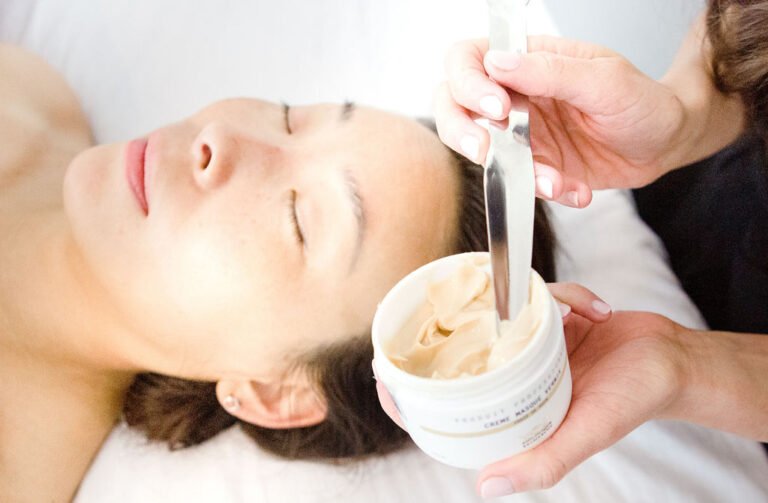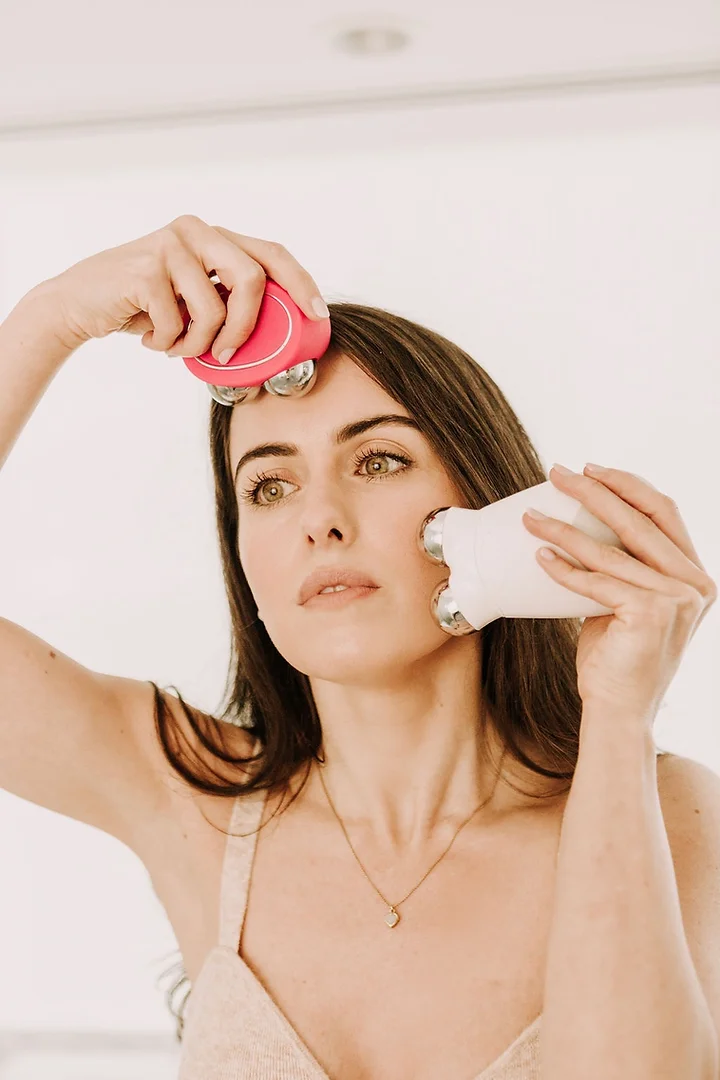How does it work?
Vitamin C on collagen synthesis
Topical Vitamin C can reach the dermal layer (second layer) of the skin to boost collagen production. Vitamin C supports the key amino acids in building collagen and supplying these amino acids with an abundance of Vitamin C accelerates collagen production.
Vitamin C on Hyper-pigmentation
Vitamin C helps to inhibit the enzyme tyrosinase and reduces melanin. Vitamin C successfully suppresses the melanocyte hyperactivity responsible for dark spots and hyperpigmentation without changing healthy pigment. Vitamin C is successful in treating hyper-pigmentation (brown spots) as a result of sun damage, post-inflammatory hyperpigmentation, and melasma.
Vitamin C a potent antioxidant
Vitamin C a potent antioxidant protecting the skin against free radical damage. So, just like we supply our bodies full of antioxidant-rich foods, we need to feed our skin in the same way. Antioxidants help to prevent and reduce damage caused by free radicals which can lead to the break down of collagen and elasticity, therefore preventing premature ageing.
Choosing the right Vitamin C
Picking the right Vitamin C is vital because nobody wants to waste money on an ineffective product, or a product that is going to lead to skin sensitivity.
There are many types of vitamin C, but the ones I found worked the best are L-ascorbic acid (water-soluble) and Tetrahexyldecyl ascorbate or BV-OSC (lipid/oil soluble).

L-ascorbic Acid
L-ascorbic Acid is a water-soluble and highly unstable form of Vitamin C. L-ascorbic Acid is the most potent form of Vitamin C, but because of its lack of stability, it can do more harm than could if the formulation is not correct. Have you purchased a Vitamin C (l-Ascorbic acid) serum that started off bright and later developed to a brownish colour? If yes, this shouldn’t happen. When this happens, the L-ascorbic acid has oxidised, and you now have dehydro-L-ascorbic acid, leaving the serum’s potency to be reduced and less effective. L-ascorbic Acid has a harder time reacher the dermal layer and percentages are generally lower to prevent product oxidising.
Tetrahexyldecyl ascorbate (BV-OSC)
Tetrahexyldecyl ascorbate (BV-OSC) is oil soluble and a highly stable form of the vitamin C family making it a lot easier to travel to the dermal layer to start building long term change within the skin. While it’s not as potent as L-ascorbic Acid, higher percentages are more stable, and it’s able to penetrate deeper. Also, because of its high stability, it’s unlikely to degrade over time.
My Top Picks for Topical Vitamin C
This for vitamin C products. I’ve worked with many different brands over the last decade, and the following products are the ones that made the most significant change in my client’s skin as well as my own. It’s important to remember that we are all different, and the skin changes with age and environment. It’s not one fit for all.
I recommend using Vitamin C in the morning, followed by a moisturiser and Physical SPF.
Dermaquest C-infusion
C-infusion uses Tetrahexyldecyl ascorbate the oil-soluble form of Vitamin C and boasts that it can boost collagen by up to 50%. Also using ferulic acid, a powerful antioxidant to enhance Vitamin C’s effectiveness. C-Infusion contains MDI complex, which increases hydration and moisture retention.
The texture is a creamy serum with added orange stem cells for extra skin support, and a aromatic citrus treat. C-infusion is my go-to right now.
I don’t recommend C-infusion for anyone with sensitive skin or very acne prone as it can be too stimulating and irritating.
Final Notes
I believe every skin can benefit from the use of topical Vitamin C but only when used correctly. Use Vitamin C serums in the morning alongside SPF to give you maximum protection against free radical damage to the skin. Prevention is better than cure.
If your skin is compromised in any way, sensitised or dealing with inflammation, treat this concern first by bringing the skin barrier back to health before adding topical Vitamin C.




